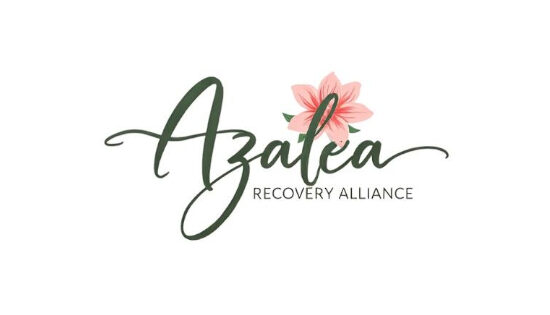Robert Lambert, Valdosta Today Legal Contributor
Have you given any thought to long-term care expenses as part of your comprehensive estate planning? You should. Consider some frightening statistics from the U.S. Department of Health and Human Services:Scary Statistics
- –70 percent of people turning age 65 will need long-term care at some point in their lives;
- –Women need care longer (3.7 years) than men (2.2 years);
- –One-third of today’s 65 year-olds may never need long-term care support, but 20 percent will need it for longer than 5 years.
Sadly, less than one-third of Americans over age 50 have begun saving for long-term care expenses that can devastate your finances and even endanger your retirement savings.
Medicaid
Because the cost is so high, many families end up relying on Medicaid to pay for long-term nursing care. In fact, Medicaid pays for the largest share of long-term care services, but to qualify, your income must be below a certain level and you must meet minimum state eligibility requirements, including a limitation on your assets.
When an individual applies for Medicaid benefits, her assets are categorized as either exempt, assets that Medicaid will not include in the total to determine eligibility; or countable, basically, all money and property that can be valued and turned into cash. Individuals can keep only a very small amount in countable assets, the rest will be used to pay for care.
When married couples are involved, however, the calculus is more complex. When one spouse applies for Medicaid benefits to pay for long-term care, the assets of both spouses are counted in determining eligibility for Medicaid benefits. That means that if one spouse uses all of her assets to pay for his nursing home care, he will not be eligible for Medicaid benefits until his spouse also spends down her assets to the allowable program limit, even if they have a prenuptial agreement that says otherwise.
Retirement Savings
The long-term care expenses of one spouse can blow a huge hole in the retirement planning of both and rapidly liquidate their retirement funds. So, how does Medicaid look at retirement funds when determining eligibility? What if a major asset of the couple is an Individual Retirement Account? Must it be liquidated until within the minimum countable asset limit for Medicaid eligibility? It depends.
The key is the payout status of the IRA. If paying out as required minimum distributions or as regular periodic monthly distributions based on life expectancy, then (depending on state law) IRA income may not be counted when determining Medicaid eligibility. However, the payouts themselves will count as income, the lion’s share of which will be applied toward the nursing home tab. Fortunately in Georgia we can deal with extra income with some advanced planning. An Elder law attorney can create and direct funding of a Qualified Income Trust, or Miller Trust, to accept any income over the Georgia Medicaid limit of $2,199.00 per month (for single individual as of Jan, 2015), and funnel those funds to the nursing home and for other allowable expenses. When income flows through a Miller Trust, Medicaid only views one’s monthly income as $2,199.00 or less, even when it is actually a lot more, allowing a person who has income above the limit to qualify for Medicaid.
Find the average annual cost of nursing home care in your state online at www.longtermcare.gov
If all of this seems complicated, know that it is. An experienced elder law attorney can help you avoid running aground, and help you design, develop and implement a comprehensive life care plan to allocate your assets so you have the choice of who provides your long term care, and how and where that care is provided.
My goal for every client is to help them avoid institutional care and remain in their homes as long as medically feasible. Then, to help them find suitable housing, whatever that may be, when they can no longer live at home. Our planning helps you plot a course so that you will never go broke or out live your money, and help you plan so you never become a burden on your loved ones. It is never too late to control your own destiny.
Please Visit My Website for More Information On these Estate Planning Issues and Other Elder Law Topics. You can subscribe to our daily blogs or feel free to give us a call at 229-292-8989.
 Bob Lambert is an Elder Law and Estate Planning Attorney who has practiced law in Valdosta for 25 years. His practice is focused mostly toward those Seniors who are 50 years of age and older where there is a need for advanced long term care planning. He utilizes a holistic approach which brings financial planners, home health care, assisted living and nursing home professionals and other experts together for comprehensive life care planning with the goal Medicaid eligibility when needed, asset protection and reallocation combined with traditional estate planning wealth transfer strategies.
Bob Lambert is an Elder Law and Estate Planning Attorney who has practiced law in Valdosta for 25 years. His practice is focused mostly toward those Seniors who are 50 years of age and older where there is a need for advanced long term care planning. He utilizes a holistic approach which brings financial planners, home health care, assisted living and nursing home professionals and other experts together for comprehensive life care planning with the goal Medicaid eligibility when needed, asset protection and reallocation combined with traditional estate planning wealth transfer strategies.
An Alabama native raised in Texas, he received his B.A. degree from the University of Texas at Austin with a degree in Government and English, and his Juris Doctorate degree from the University of Mississippi where he graduated 4th in his class. He is a member of both the Georgia Bar and the Texas Bar; a member of the Elder law section of the State Bar of Georgia; and a member of the National Academy of Elder Law Attorneys including the Trust and Medicaid planning sections.
He regularly and eagerly provides complimentary seminars to civic groups, churches and other organizations on long term care planning and Medicaid eligibility. His primary focus is to help all seniors 50 years of age and older understand the necessity and importance, and implement , advance planning to preserve assets for enhanced quality of life in advanced age. More information can be found at his website where you subscribe to his weekly blogs on Elder law and estate planning issues at www.legaladviceforseniors.com.











